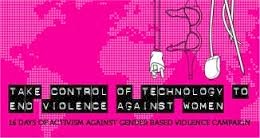ICTs crucial in gender based violence fight
Lazarus Sauti
Gender based violence
(physical, emotional or psychological violence carried out against a person
because of that person’s gender) is an insult to human dignity and to the basic
human rights of women.
This is according to a Southern
Africa HIV and AIDS Information Dissemination Service (SAFAIDS) Policy Brief.
The same policy brief
document states that gender based violence is generally male on female and it
maybe be vice versa.
“While gender based violence
is generally male on female, it may also be female on male,” noted SAFAIDS,
adding, “The adverse consequences of gender based violence extend to family,
community and even to national, social and economic development.”
Sadly, one Joint United
Nations Programme on HIV and AIDS (UNAIDS) study in Africa highlighted that at
least 60 percent of women have experienced physical and sexual violence from
their most recent spouse or live-in partner.
This shows that spousal
violence is the leading form of gender based violence in most African countries
and is grounded in cultural practices which have dimensions of gender
inequality.
To shed more light, the
World Health Organisation (WHO) states that women are disproportionately the
victims of violence worldwide (World Report on Violence and Health, World
Health Organisation).
Since women suffer
most, governments, civic organisation, nongovernmental organisations and women
groups or organisations should empower African women with information and
communication (ICT) tools to fight gender based violence.
Blogger Emma Saloranta of Girls’ Globe, an organisation that works to raise
awareness and educate others about global issues concerning the rights, health
and empowerment of women and girls, said information and communication
technologies and the Internet play a big role in the battle against sexual
abuse and violence against women.
“While information and communication technologies and Internet can pose a
risk to women and girls, they can also offer new, innovative ways to battle
violence against women and to provide women and girls with more protection,
more security and more independence.”
Saloranta added: “New technologies are paving the way for creative
approaches to battle violence against women and sexual abuse, and as mobile
phones are becoming more and more common and available in even the most remote
locations, these solutions can offer support, information, help and protection
to women and girls across countries, cultures and socio-economic classes.”
The UN Women shares the same sentiments and views information communication
technologies as powerful means to advance women’s rights, empowerment and
gender.
Speaking at the United Nations Broadband Commission Working Group on Gender
recently, UN Women Executive Director, Phumzile Mlambo-Ngcuka, said her
organisation is committed to fight use ICTs to end gender based violence.
She added, “To end violence against women, for instance, we are
providing mobile phone apps to report safety risks and to get access to services
for survivors of gender-based violence.”
Buhlebenkosi Moyo,
information and communications officer for Zimbabwe Women’s Resource Centre
Network, an organisation that promotes women’s rights, said ICTs play an important role in helping eliminate gender based
violence.
“ICTs play a prominent role in helping eliminate gender based violence because
information to help eliminate gender based violence can be communicated
effectively. They can be used for current awareness as they make it easier for
one to access and disseminate information” she said.
ICTs can also be used to offer other forms of support to survivors of
violence against women as well as to people and organisations working to combat
it.
Moyo said women should be capacitated on how to use ICTs to fight gender
based violence.
“Women should be empowered to see ICTs in positive light and be encouraged
to use it effectively to speak up and fight this scourge – gender based
violence,” Moyo said.
To effectively embrace information and communication technologies in the
battle to end gender based violence, a multisectoral approach is required.
Accordingly, African governments should work together with
key stakeholders – Ministries responsible for women affairs, women
organisations, civic organisations, nongovernmental organisations, faith based
organisations and ordinary women - in dealing with gender based violence.
A multi-sectoral
approach in the reduction of gender-based violence is important because government
alone cannot reach many people.
For everything to work
in the battle to end gender based violence, women should take control of ICTs
and consciously use them to combat gender based violence.
However, it is critical
to note that in most African countries; technology is still male dominated, expensive
and inaccessible to most people because ICT knowledge and skills are required.
Therefore, training
women in ICTs is crucial for imparting practical skills, improving
communication capacities, sharing experiences and information, and enabling
them to network with other women.
Without doubt, ICTs are
weapons in the fight against gender based violence. Accordingly, African
governments should embrace them to combat gender based violence.

Comments
Post a Comment